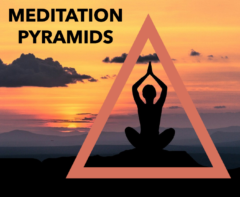Meditation’s role in emotional stability isn’t just a new-age trend; it’s backed by science. The practice, rooted in ancient traditions, has shown impressive results in stabilizing moods and boosting emotional health. So, what exactly happens when you meditate? Well, meditation helps rewire your brain, particularly impacting areas associated with emotional regulation. Studies have indicated alterations in brain structures like the amygdala, which is linked to processing emotions.

Regular meditation practice can lead to reduced emotional volatility. When you’re consistent, it becomes easier to manage stress, anger, and anxiety. Those emotional mountains you face? They start looking more like molehills. This is what we mean when we say meditation helps with emotional stability. A few deep breaths, some mindful moments, and suddenly, life’s challenges seem a bit more manageable.
The transformation isn’t an immediate magic trick. It’s about small, incremental changes over time. Meditating frequently can promote a sense of inner peace, allowing you to respond to life’s ups and downs with a clearer mind. It’s a bit like building emotional armor that guards against daily stresses and unexpected events.
Now, you might wonder, does meditation actually help with emotional stability? Absolutely. People who meditate often report feeling more emotionally grounded and less reactive in their day-to-day lives. From handling conflicts at work to dealing with personal setbacks, meditation equips you with the tools to stay calm and balanced.
Using Meditation for Emotion Regulation: A Practical Guide
So, you’re ready to give meditation a go for emotion regulation. Awesome choice! It all starts with setting aside a few minutes each day where you won’t be interrupted. Try finding a quiet spot, sit comfortably, close your eyes, and just breathe. Focusing on your breath might feel odd initially, but that’s the foundation of most meditation practices.
New to meditation? No worries. For beginners, guided meditations are a fantastic way to start. Apps and online platforms offer sessions specifically designed to help manage emotions. You’ll get led through practices that calm the mind and steady the heart. Once you’re familiar, try experimenting with techniques like visualization or focusing on a mantra.

Ready to take it up a notch? Advanced techniques bring more depth, often involving prolonged sessions or silent meditation retreats. Such practices usually require dedication and some experience but can offer profound insights into emotional patterns.
Integrating meditation into your daily life is crucial for seeing the benefit. Add it to your morning routine or slip in a quick session during lunch breaks. Consistency is key, and even short sessions can leave you feeling more grounded and less likely to react impulsively.
You might be thinking, how do I really use meditation to regulate emotions? Well, it’s about control and awareness. By meditating, you’re training your mind to observe your emotions without getting swept away. In heated moments, it becomes easier to pause, reflect, and respond rather than react. This is how meditation becomes a powerful tool for balancing emotions.
Mindfulness: The Key to Enhanced Emotional Regulation
Mindfulness goes hand in hand with meditation but brings its unique flavor to the table. Unlike traditional meditation, mindfulness is all about staying present in the mundane details of daily life, turning everyday moments into opportunities for emotional growth.
Practicing mindfulness means giving your full attention to what you’re doing, whether it’s savoring a meal, taking a walk, or even washing the dishes. This practice cultivates awareness and prevents your mind from wandering off into stress or worry, laying the groundwork for better emotional regulation.
Take a look at techniques like breathwork and body scans. Breathing exercises center your attention, helping you feel calmer and more in charge. A body scan, on the other hand, involves paying attention to physical sensations throughout your body, which can reveal tension or stress you’re unconsciously holding.
Mindfulness works wonders because it helps you slow down and observe your feelings without judgment. Rather than getting swept away by an emotional wave, you’re able to notice its rise and fall. This awareness is akin to having a pause button for your emotions, making it easier to choose how to respond.
Mindfulness truly shines in improving emotional regulation. It develops a keener understanding of yourself and your triggers, paving the way for more balanced reactions. Whether you’re dealing with a tough day at work or personal issues, mindfulness provides tools for handling emotions with grace and calmness.
Enhancing Emotional Intelligence through Meditation
Emotional intelligence—it’s like the secret sauce for navigating social situations and personal challenges. Meditation, surprisingly, can be your best ally in boosting this essential trait. It all boils down to the way meditation enhances self-awareness and empathy, core components of emotional intelligence.

Let’s break it down. Self-awareness involves recognizing your own emotions and understanding how they impact your thoughts and actions. Meditation facilitates this by providing moments of introspection and reflection. Over time, you’ll start identifying emotional patterns and triggers, leading to greater self-insight.
Empathy, another crucial aspect of emotional intelligence, gets a boost from meditation as well. By fostering mindfulness and compassion, meditation encourages you to consider how others feel. Empathy isn’t just understanding; it’s about connecting to others on a deeper level, and meditation can enhance this ability by making you more attentive to people’s needs and emotions.
Scientific studies back up these claims, showing a link between meditation practices and improved emotional intelligence. Those who meditate often experience more attunement to their emotions and better social harmony. Whether it’s relating to colleagues or strengthening personal relationships, meditation’s benefits reach far and wide.
So, if you’re looking to amp up your emotional intelligence, regular meditation practice is the way to go. It doesn’t just enhance what’s within; it transforms how you interact with the world around you. This journey into meditation can make all the difference in leading a more emotionally intelligent and fulfilling life.


Thanks for sharing such an insightful article on meditation for emotional stability! I’m curious, do certain types of meditation practices (like mindfulness versus mantra meditation) work better for specific emotional challenges? Also, how long does it typically take before people notice a significant impact on emotional regulation?
I can see how adding this into daily life could help manage stress and anxiety, and I’m excited to explore it more. Looking forward to hearing your thoughts on the best starting points for beginners!
Hi Roopesh
Hi there!
Thanks for your enthusiasm and for diving deeper into the practice! When it comes to emotional stability, different meditation techniques can be especially effective for certain challenges. Mindfulness meditation, for instance, is fantastic for managing stress and cultivating awareness of emotions without judgment, which helps in responding more calmly over time. On the other hand, mantra meditation can be helpful for grounding and building resilience against persistent worries or anxiety by creating a rhythmic focus point.
In terms of timeframe, many people report feeling initial shifts in emotional awareness within the first few weeks of consistent practice—sometimes as little as 10-15 minutes daily. But for deeper emotional regulation, around 8 weeks of regular practice often leads to more noticeable changes.
If you’re just starting, trying a few techniques to see what resonates is a great approach. Finding what feels comfortable will help you stick with it and build a strong foundation.
kindest regards
Alan